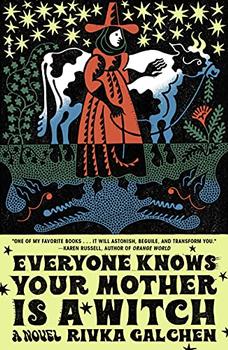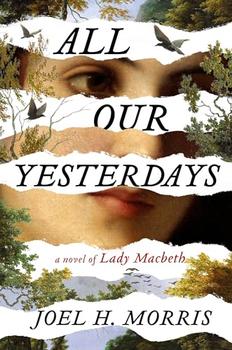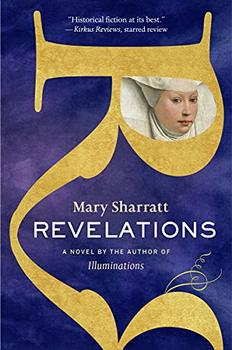Summary | Excerpt | Reading Guide | Reviews | Beyond the book | Read-Alikes | Genres & Themes | Author Bio

Rivka Galchen's novel Everyone Knows Your Mother Is a Witch is a historical fiction tale set in the 17th century in what is now Southwest Germany. Katharina Kepler, mother of famed astronomer Johannes Kepler, is engaged in an ongoing war of words with her neighbor Ursula Reinbold, to whom Katharina refers as "the Werewolf." Ursula spreads the rumor that Katharina is a witch and the gossip gains traction, leading to Katharina's arrest. It's up to Johannes to defend his mother against the accusation, with her fate being death by burning at the stake if he fails. The book unfolds primarily through Katharina's first-person account, which clarifies that the illiterate septuagenarian has asked a friend, Simon Satler, to record her story for her. Interspersed with the monologue are Simon's occasional comments about his own actions throughout Katharina's ordeal.
The word I'd primarily use to describe the novel's plot is "subtle." Superficially, not a lot happens, and at first glance the narrative appears to simply be an old woman's rambling report of her grievances. Upon reflection, though, one starts to appreciate Galchen's talent; she marvelously paints detailed pictures of the era, the characters and the progression of Katharina's case without being overt with her descriptions. Events happen in the background and are referred to obliquely, but the reader is still able to understand what's going on. From her own point of view, Katharina is a perfectly reasonable person, but behind her words we see someone overbearing, cranky and generally difficult. It's the ability to make the complex seem simple at first that sets Galchen's writing apart.
Johannes Kepler's mother really was accused of witchcraft, and he had to defend her in court. Galchen combines translations of letters and legal papers with era-specific tidbits to give her readers an immersive sense of time and place. This makes for extremely well-done historical fiction, and the author's extensive research is evident throughout. The narrative provides little information about Johannes; the historical aspects of the book are concerned primarily with everyday life — for example, the fact that many people made use of the baker's oven since they didn't have one of their own, and that women were required to have an official guardian present when dealing with the legal system.
While there is quite a lot of wry humor in the narration, I found the book rather bittersweet. Katharina and her family experience a great deal of loss, resulting from both the court case as well as the unavoidable hazards of 17th-century life. The energetic, belligerent woman present at the novel's start is transformed by the story's events into a shell of herself, lacking the fire she used to possess; this change, while realistic, left me a bit sad.
I feel that this will be one of those books that critics appreciate more than general readers. First, I think its name alone will cause many to overlook it — I almost passed on it because the title screams "Young Adult." Also, the language Galchen uses at times seems too modern (someone is referred to as "a very honorable guy," another person is "in charge of the kids," "okay" appears as a response), which may be off-putting to some. The biggest potential issue, though, is also precisely what makes the novel a work of genius: As mentioned, it has exceptional depth but at first seems to be a meandering tale without much point. It's consequently a bit slow and requires some reflection for full appreciation of its nuances; I suspect some readers will abandon the book before that realization sets in.
Galchen is an expert crafter of unreliable narrators; not only is it obvious from the start that Katharina fits this description, but it can be applied to nearly every other character given voice. Consequently, Everyone Knows Your Mother Is a Witch will appeal most to those who enjoy this style of writing, as well as those looking for an excellent work of historical fiction. I also highly recommend it for readers interested in a slower-paced novel that rises above the page-turners on the bestseller list.
![]() This review was originally published in The BookBrowse Review in June 2021, and has been updated for the
July 2022 edition.
Click here to go to this issue.
This review was originally published in The BookBrowse Review in June 2021, and has been updated for the
July 2022 edition.
Click here to go to this issue.

If you liked Everyone Knows Your Mother Is a Witch, try these:

by Joel H. Morris
Published 2024
A propulsive and piercing debut, set ten years before the events of Shakespeare's historic play, about the ambition, power, and fate that define one of literature's most notorious figures: Lady Macbeth.

by Mary Sharratt
Published 2022
A fifteenth-century Eat, Pray, Love, Revelations illuminates the intersecting lives of two female mystics who changed history - Margery Kempe and Julian of Norwich.
Your guide toexceptional books
BookBrowse seeks out and recommends the best in contemporary fiction and nonfiction—books that not only engage and entertain but also deepen our understanding of ourselves and the world around us.